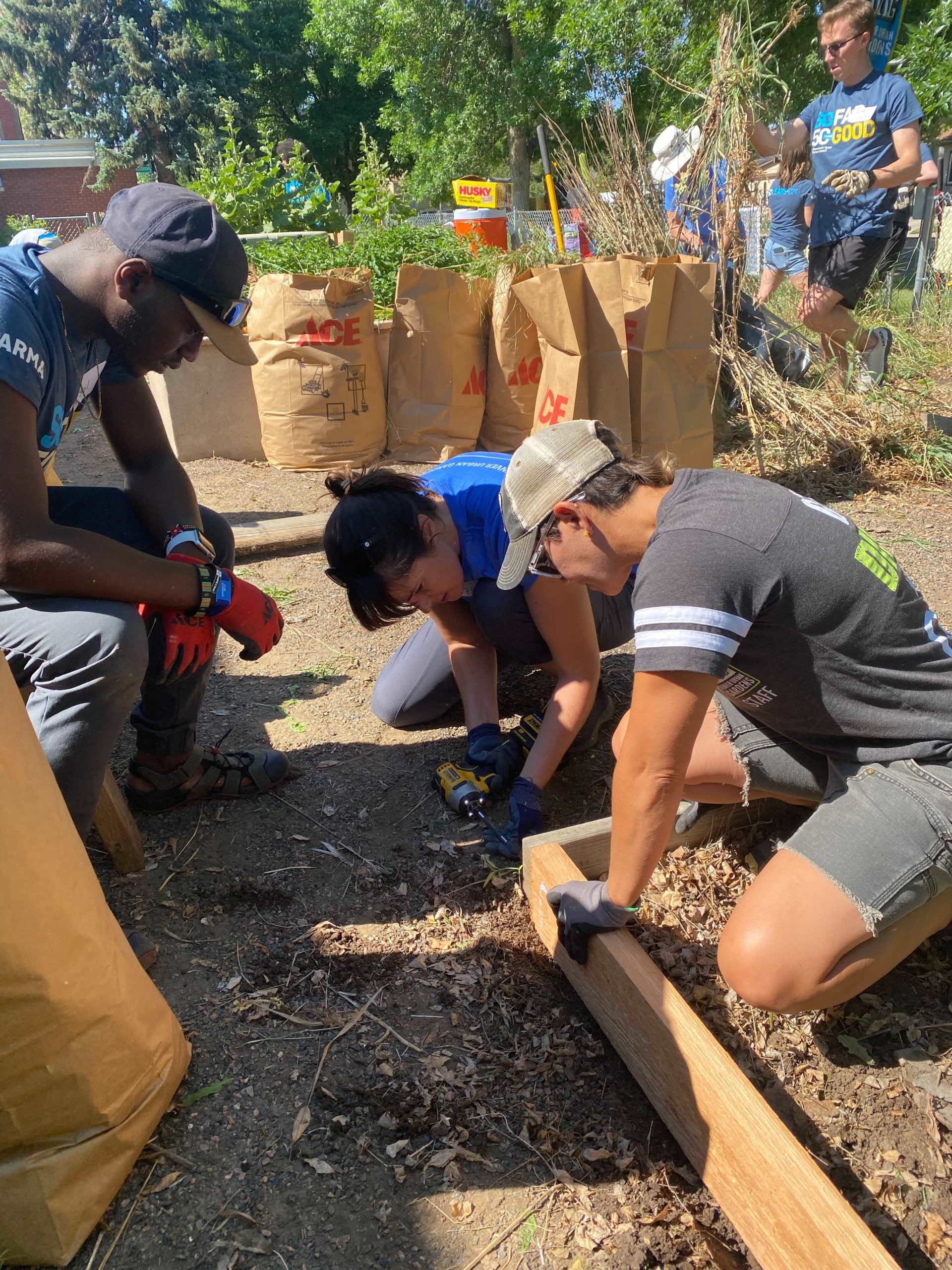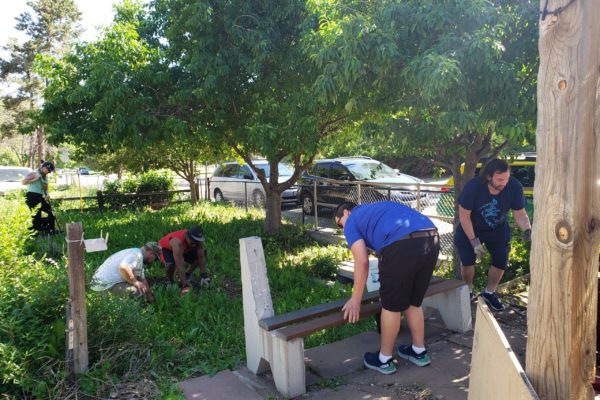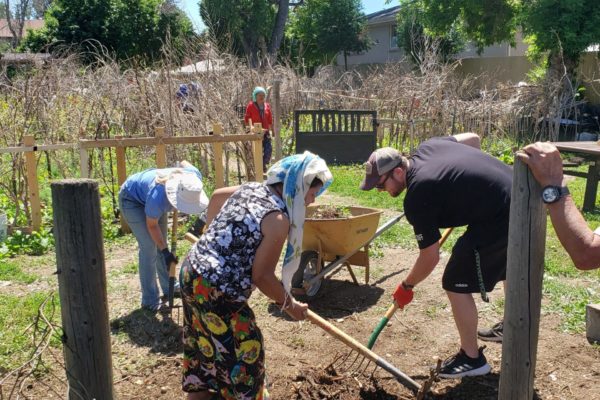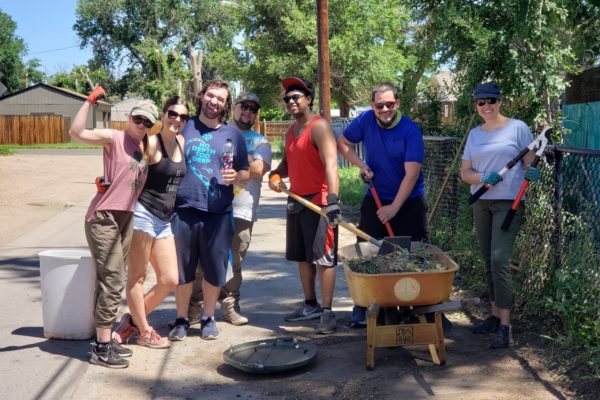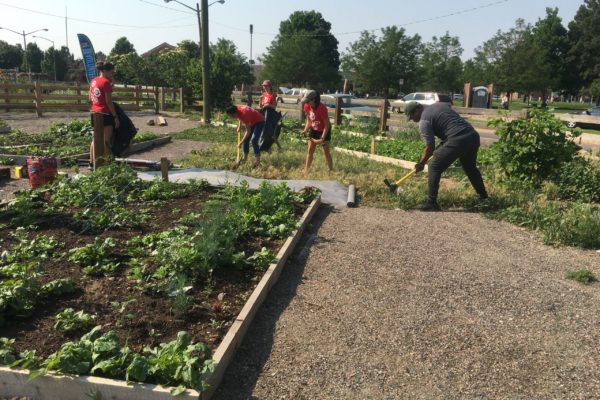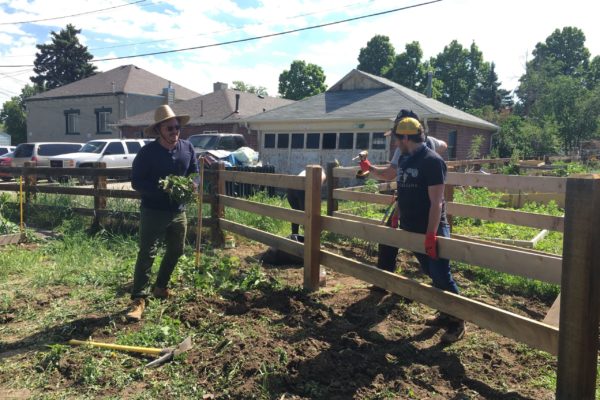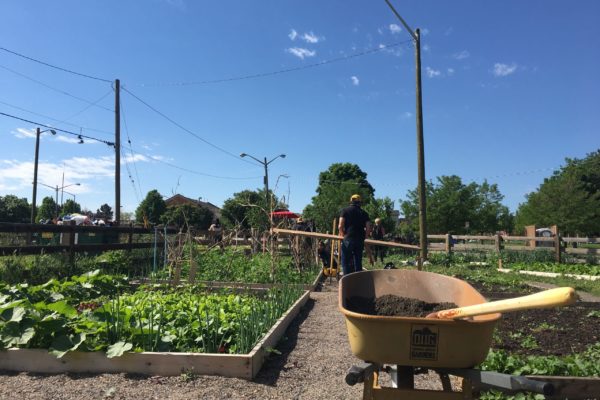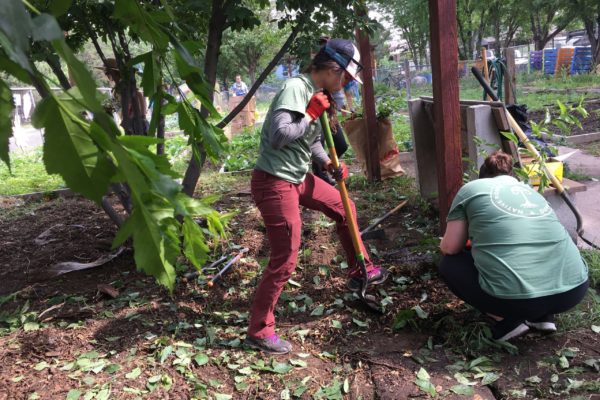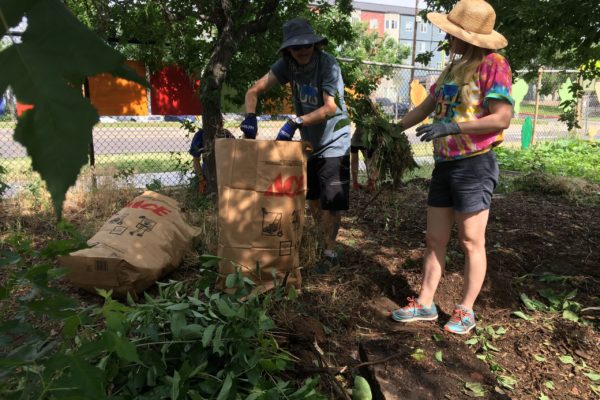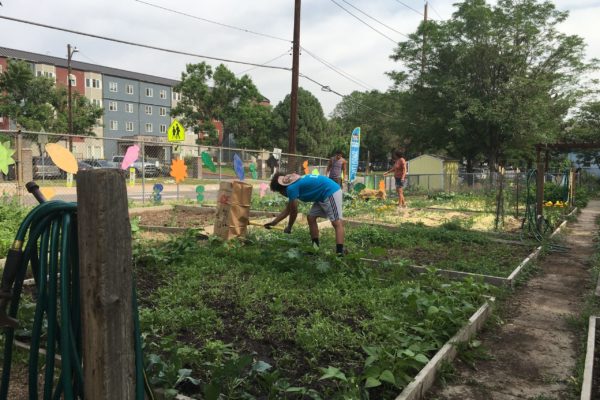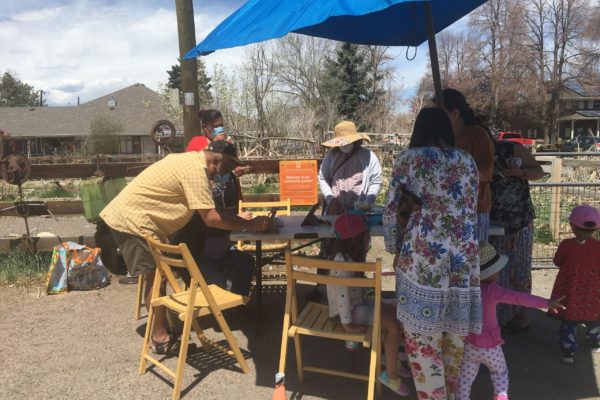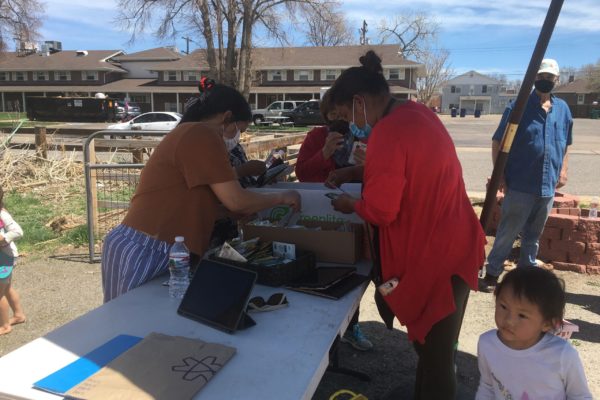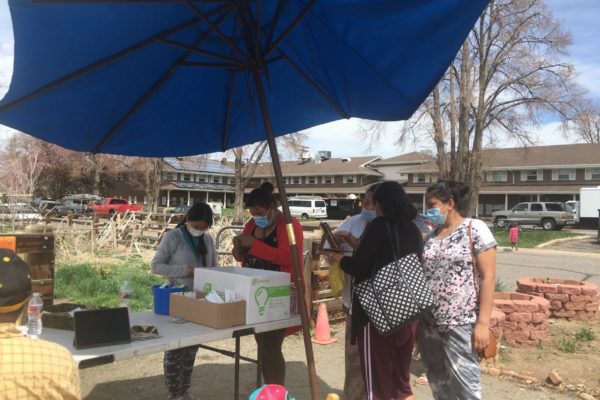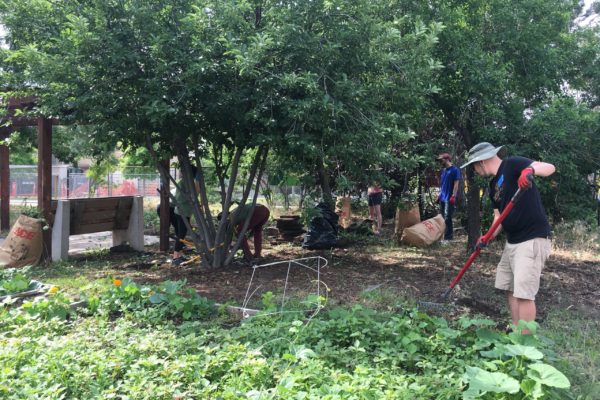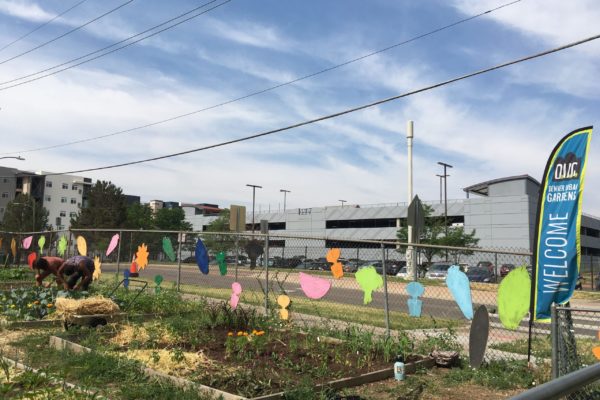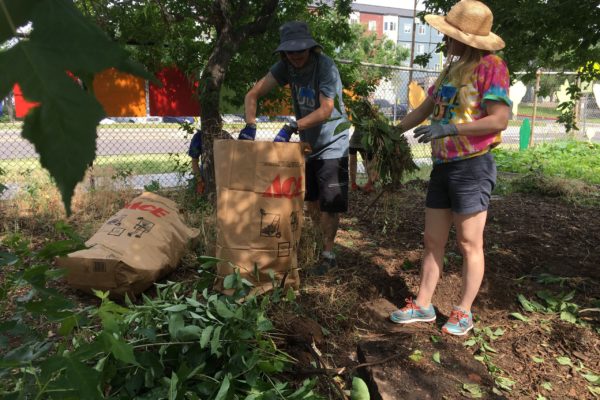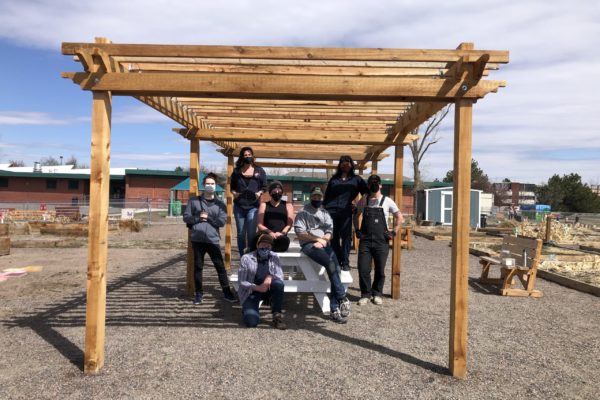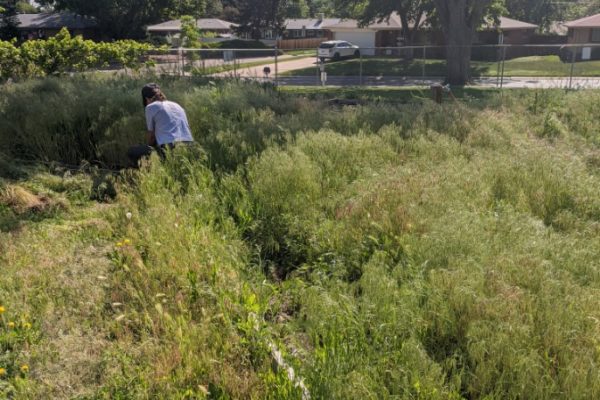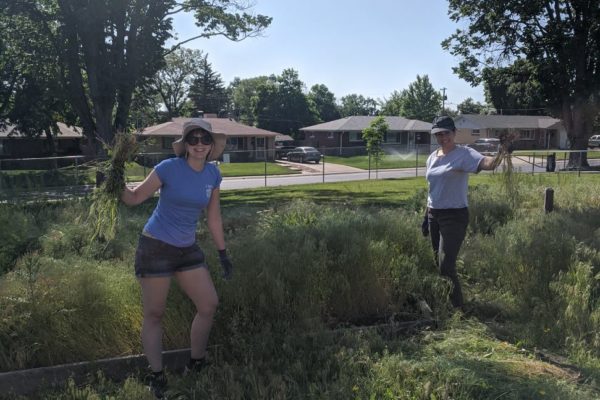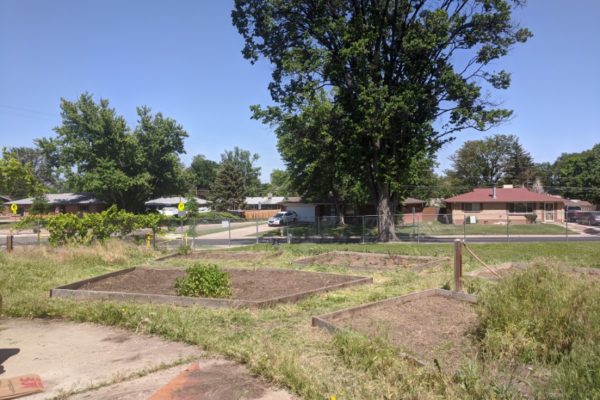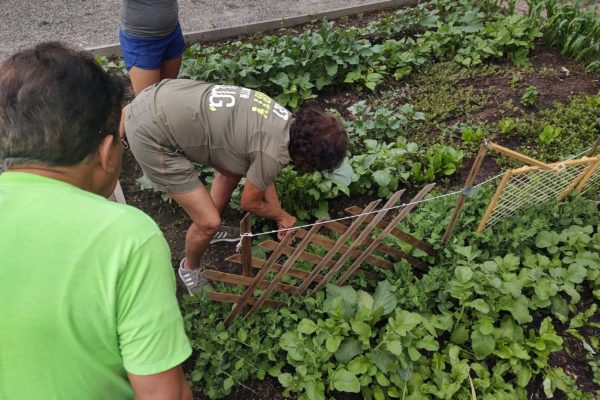Overview of BII
The BII is a holistic program centered on establishing and increasing equity across DUG’s entire network of community gardens. This program is open to pubic-facing DUG community gardens. The BII encompasses 4 core areas– Activation, Infrastructure, Financial, and Supplies – to ensure that all of our gardens are resourced at an equitable level to support thriving community gardens producing optimum yields for their needs. This program prioritizes gardens with improvements around garden safety, security, food production, gathering space and accessibility.

Program History
In 2020, DUG sought feedback from more than 500 stakeholders in order to gain insight into what our community members needed from DUG. The feedback had a common theme: community gardeners and Garden Leaders wanted and needed more of DUG. Our gardeners asked for more support, education, leadership training, community building, and to ensure equity across the network. In response, in 2021 DUG launched our new Baseline Infrastructure Initiative (BII).
With the support of our new apprentice, DUG has already begun the process of several garden upgrades as well as new garden construction to create enhanced gathering areas, better sustainability + conservation features, and inclusive, multilingual signage. Our new DUG Corps team members are focusing on assisting more new gardeners, facilitating quicker garden repairs and maintenance, and building community at the gardens and across the Micro-Networks by providing a conduit for gardener feedback to-and-from DUG HQ.
BII Success Looks Like:
All garden plots are fully utilized.
To achieve this outcome, DUG will provide translators and on-the-ground support for plot applications to overcome language and technology barriers, develop and distribute multilingual resources for DUG mentorship and educational programming, recruit representational leadership at all gardens, and provide support for community-building events including through DUG Corps and paid apprentices.
All gardens meet a baseline physical infrastructure standard.
This entails completing regular repairs and improvements to at-need gardens, including providing water access, shade structures, and tool storage. This also looks like delivering resources like compost, seeds, and seedlings, regardless of a garden’s ability to pay.


